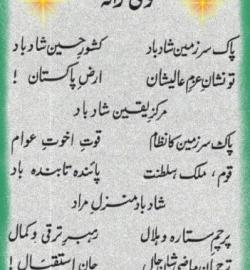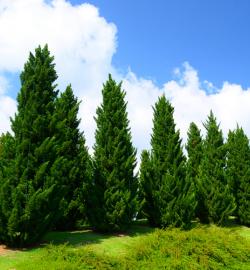Independence Day (Urdu: یوم آزادی; Yaum-e Āzādī), observed annually on 14 August, is a national holiday in Pakistan. It commemorates the day when Pakistan achieved independence and was declared
Muhammad Ali Jinnah (Founder of Pakistan)

Muhammad Ali Jinnah (born Mahomedali Jinnahbhai; 25 December 1876 – 11 September 1948) was a lawyer, politician, and the founder of Pakistan.[1] Jinnah served as leader of the All-India Muslim League from 1913 until Pakistan's independence on 14 August 1947, and then as Pakistan's first Governor-General until his death. He is revered in Pakistan as Quaid-i-Azam (Urdu: قائد اعظم; Great Leader) and Baba-i-Qaum (Urdu: بابائے قوم; Father of the Nation). His birthday is observed as a national holiday in Pakistan.[2][3]
Born at Wazir Mansion in Karachi, Jinnah was trained as a barrister at Lincoln's Inn in London. Upon his return to British India, he enrolled at the Bombay High Court, and took an interest in national politics, which eventually replaced his legal practice. Jinnah rose to prominence in the Indian National Congress in the first two decades of the 20th century. In these early years of his political career, Jinnah advocated Hindu–Muslim unity, helping to shape the 1916 Lucknow Pact between the Congress and the All-India Muslim League, in which Jinnah had also become prominent. Jinnah became a key leader in the All India Home Rule League, and proposed a fourteen-point constitutional reform plan to safeguard the political rights of Muslims. In 1920, however, Jinnah resigned from the Congress when it agreed to follow a campaign of satyagraha, which he regarded as political anarchy.
By 1940, Jinnah had come to believe that Muslims of the Indian subcontinent should have their own state. In that year, the Muslim League, led by Jinnah, passed the Lahore Resolution, demanding a separate nation. During the Second World War, the League gained strength while leaders of the Congress were imprisoned, and in the elections held shortly after the war, it won most of the seats reserved for Muslims. Ultimately, the Congress and the Muslim League could not reach a power-sharing formula for the subcontinent to be united as a single state, leading all parties to agree to the independence of a predominantly Hindu India, and for a Muslim-majority state of Pakistan.
As the first Governor-General of Pakistan, Jinnah worked to establish the new nation's government and policies, and to aid the millions of Muslim migrants who had emigrated from the new nation of India to Pakistan after independence, personally supervising the establishment of refugee camps. Jinnah died at age 71 in September 1948, just over a year after Pakistan gained independence from the United Kingdom. He left a deep and respected legacy in Pakistan. Innumerable streets, roads and localities in the world are named after Jinnah. Several universities and public buildings in Pakistan bear Jinnah's name, while his career influenced a number of activists including Malala Yousafzai. According to his biographer, Stanley Wolpert, he remains Pakistan's greatest leader.
About Pakistan
-
-

Muhammad Ali Jinnah (born Mahomedali Jinnahbhai; 25 December 1876 – 11 September 1948) was a lawyer, politician, and the founder of Pakistan.[1] Jinnah served as leader of the All-India Muslim
-

Allama Iqbal (علامہ اِقبال) (November 9, 1877 – April 21, 1938), widely known as Muhammad Iqbal, was a poet, philosopher, and politician, as well as an academic, barrister and scholar[1][2] in
-

Pakistan is one of nearly 200 countries illustrated on our Blue Ocean Laminated Map of the World. This map shows a combination of political and physical features. It includes country boundaries,
-

The Qaumi Taranah (Urdu: قومی ترانہ, Qaumī Tarānah pronounced [ˈqɔː.mi ˈt̪ə.rɑː.nɑ], lit. “National Anthem”), also known as Pāk Sarzamīn (Urdu: پاک سرزمین, pronounced [ˈpɑːk ˈsər.zə.miːn], lit
-

The salwar kameez is the national dress of Pakistan[1][2] and is worn by men and women in all four provinces Punjab, Sindh, Baluchistan and Khyber Pakhtunkhwa in the country and in Azad Kashmir.
-

For thousands of years, the jasmine plant has been cultivated not only for the beauty of its small, white, star-like flowers, but it has also been prized for its intoxicating scent. Originating in
-

Cedrus deodara (deodar cedar, Himalayan cedar, or deodar/devdar/devadar/devadaru; Urdu: ديودار deodār/devdār; Punjabi: دیار is a species of cedar native to the western Himalayas in eastern
-

The markhor (Capra falconeri; Pashto: مرغومی marǧūmi; Persian/Urdu: مارخور), also known as the screw horn goat, is a large species of wild goat that is found in northeastern Afghanistan,
-

The chukar partridge or chukar (Alectoris chukar) is a Eurasian upland gamebird in the pheasant family Phasianidae. It has been considered to form a superspecies complex along with the rock
-

Urdu (اردو) is the national language (قومی زبان), lingua franca and one of two official languages of Pakistan (the other currently being English). Although only about 8% of Pakistanis speak it
-

Field Hockey is the national game of Pakistan and wearing green shirts represent the Pakistan Hockey Federation in international field hockey competitions. Even though field hockey is the
-

The Nishan-i-Haider (Urdu: نشان حیدر meaning "Order of the Lion") is the Highest' military award given by Pakistan. Awarded "to those who have performed acts of greatest heroism or most
-

The Hilal-i-Jur'at (Urdu: ہلال جرات [ɦəˈlaːl ə dʒʊˈraːt̪], as if it were Halāl-e-Jurāt; English: Crescent of Courage , sometimes spelled as Hilal-e-Jur'at, Hilal-e-Jurat, Hilal-i-Jurrat and
-

Sitara-e-Jurat (Star of Courage) is the third highest military award of Pakistan. It was established in 1957 after Pakistan became a Republic; however, it was instituted retrospectively back to
-

Sitara-e-Basalat (Star of Good Conduct) is a non-operational award of Pakistan Armed Forces given to individuals for distinguished acts of gallantry, valor or courage while performing their duty.[
